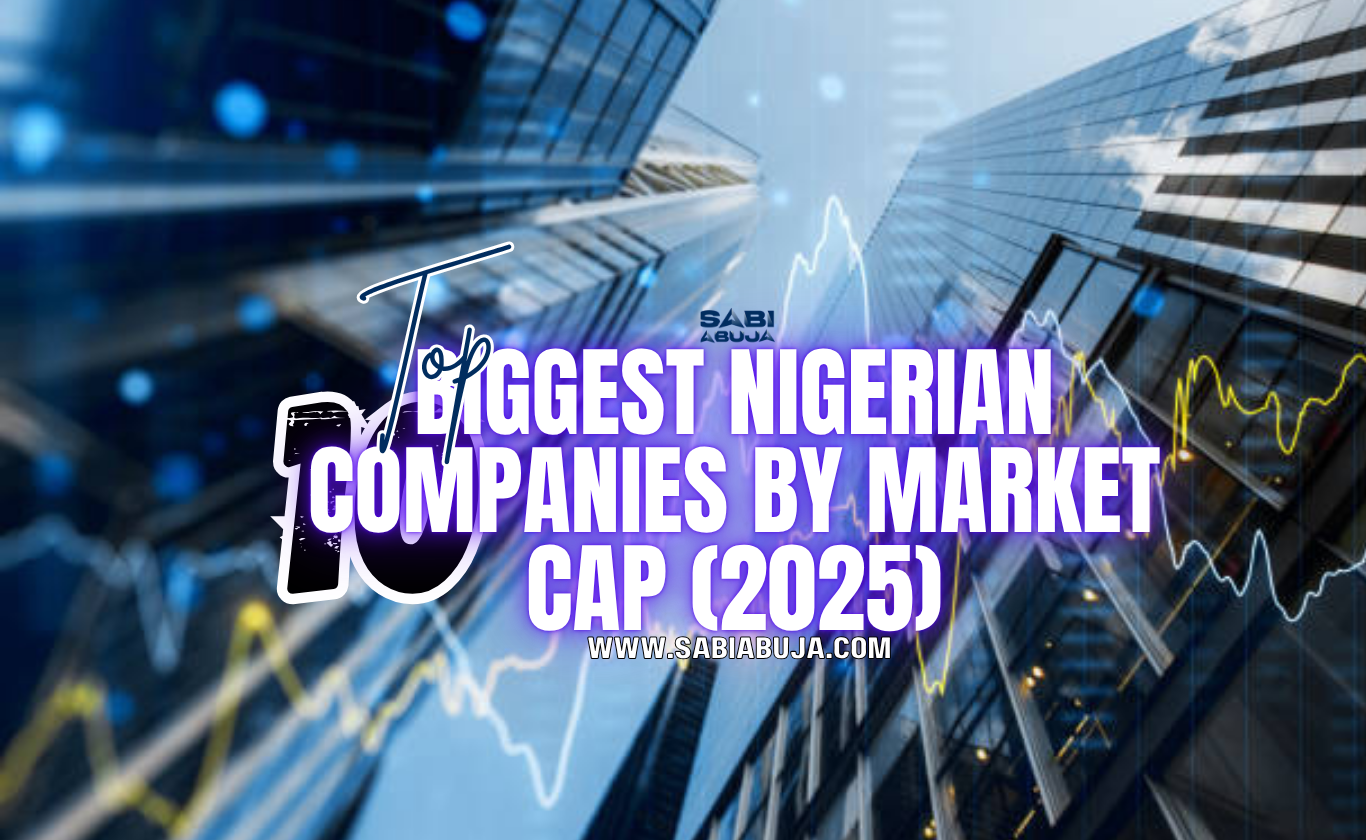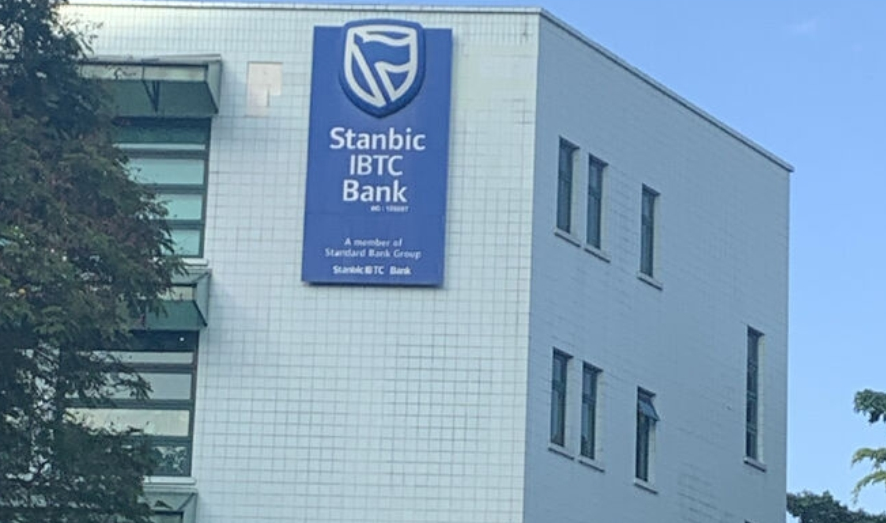
Nigeria’s economy is one of the largest in Africa, powered by industries such as telecommunications, manufacturing, cement production, and financial services. The Nigerian Exchange (NGX) hosts several major players that drive the nation’s economic growth, companies that not only dominate their sectors but also shape the country’s global investment outlook.
In this post, we explore the Top 10 Biggest Nigerian Companies by Market Capitalization in 2025, what makes them successful, and how they continue to influence the Nigerian economy.
Biggest Nigerian Companies
1. BUA Foods Plc
View this post on Instagram
Market Cap: ₦11.33 trillion (≈ US$7.5–8 billion)
BUA Foods currently stands as Nigeria’s most valuable listed company. The company operates across multiple segments — sugar, flour, pasta, and rice — making it a dominant force in Nigeria’s food and agribusiness sector.
Its consistent growth is fueled by high demand for consumer goods, strong brand positioning, and strategic local production that reduces reliance on imports. BUA Foods’ expansion into the rice and sugar markets has also strengthened its hold in West Africa.
Key Strength: Diversification and strong local value-chain integration.
2. MTN Nigeria Communications Plc
View this post on Instagram
Market Cap: ₦10 trillion (≈ US$6–6.5 billion)
MTN Nigeria remains a telecom giant and one of the most profitable companies in Africa. With over 70 million subscribers, it has leveraged data services, mobile money, and broadband expansion to sustain growth.
Despite challenges from currency fluctuations and regulatory costs, MTN’s strong fundamentals and brand reputation keep it among the top Nigerian companies by market value.
Key Strength: Market leadership in telecom and data innovation.
3. Dangote Cement Plc
View this post on Instagram
Market Cap: ₦8–9 trillion (≈ US$5–6 billion)
Dangote Cement remains one of Africa’s most valuable industrial brands. As Nigeria’s leading cement producer, the company operates across several African countries, maintaining massive production capacity and a strong domestic market share.
It continues to benefit from government infrastructure projects and growing real estate demand.
Key Strength: Consistent profitability and dominance in construction materials.
4. Airtel Africa Plc
View this post on Instagram
Market Cap: ₦8.5–₦9 trillion (≈ US$5.8 billion)
Airtel Africa ranks among the top telecom operators on the continent. With operations across 14 African countries, its Nigerian business contributes significantly to total revenue.
The company’s market cap reflects investor confidence in telecom and digital finance, particularly its mobile money and broadband growth segments.
Key Strength: Pan-African reach and strong telecom diversification.
5. BUA Cement Plc
View this post on Instagram
Market Cap: ₦5–6 trillion (≈ US$3–4 billion)
A sister company to BUA Foods, BUA Cement is a major player in Nigeria’s cement industry, operating multiple plants across the country.
Its expansion projects and efficient operations continue to position it as a formidable rival to Dangote Cement, driving competitiveness and growth in the sector.
Key Strength: Strong industrial base and rapid production expansion.
6. Seplat Energy Plc
View this post on Instagram
Market Cap: ₦2.8–₦3 trillion (≈ US$2–2.5 billion)
Seplat Energy is Nigeria’s leading independent oil and gas company. It plays a key role in bridging Nigeria’s energy supply gap, focusing on exploration, gas-to-power, and renewable energy initiatives.
The company’s steady growth and international partnerships have solidified its place among the top publicly traded Nigerian firms.
Key Strength: Energy diversification and global-standard governance.
7. Zenith Bank Plc
View this post on Instagram
Market Cap: ₦1.9–₂.₀ trillion (≈ US$1.3 billion)
Zenith Bank continues to be a leading financial institution in Nigeria, known for its strong balance sheet, digital banking innovation, and solid governance structure.
The bank’s consistent profitability, coupled with expansion into e-banking and international operations, reinforces its dominance in Nigeria’s financial sector.
Key Strength: Stable financial performance and investor trust.
8. Nestlé Nigeria Plc

Market Cap: ₦1.8 trillion (≈ US$1.2 billion)
Nestlé Nigeria remains a household name, producing popular brands like Milo, Maggi, and Golden Morn. Despite inflation and currency challenges, its deep distribution network and consistent brand loyalty sustain its profitability.
Key Strength: Brand power and consistent consumer demand.
9. Stanbic IBTC Holdings Plc

Market Cap: ₦1.7 trillion (≈ US$1.1 billion)
Stanbic IBTC is a leader in wealth management, investment banking, and pension administration in Nigeria. It continues to attract investors with its diversified services and steady growth in assets under management.
Key Strength: Diversified financial services and strong corporate governance.
10. Guaranty Trust Holding Company (GTCO)
View this post on Instagram
Market Cap: ₦1.6 trillion (≈ US$1 billion)
GTCO, formerly GTBank, is one of Nigeria’s most innovative financial institutions. With strong digital platforms and expansion into fintech and asset management, GTCO has sustained impressive profitability in recent years.
Key Strength: Digital innovation and customer-centric banking.
Why Market Capitalization Matters
Market capitalization represents the total value of a company’s shares. It helps investors understand company size, growth potential, and stability.
In Nigeria, companies with strong earnings, brand equity, and diversified portfolios, like MTN, BUA, and Dangote consistently attract both local and international investors.
Frequently Asked Questions About Biggest Nigerian Companies
1. What is market capitalization?
Market capitalization (or market cap) is the total value of a company’s outstanding shares of stock. It’s calculated by multiplying the company’s share price by the total number of outstanding shares. It helps investors understand how big or valuable a company is in the market.
2. Which company currently has the highest market capitalization in Nigeria?
As of 2025, BUA Foods Plc holds the top spot as Nigeria’s biggest company by market capitalization, with an estimated value of over ₦11 trillion (≈ US$7.5–8 billion).
3. Which sectors dominate the Nigerian market in terms of value?
The top sectors by market cap in Nigeria are Telecommunications, Cement, Banking, Energy, and Consumer Goods. Companies like MTN, Dangote Cement, BUA Foods, and Zenith Bank lead these industries.
4. How do companies like MTN and Airtel contribute to Nigeria’s economy?
Both MTN Nigeria and Airtel Africa are major drivers of digital connectivity and financial inclusion. They provide mobile services, broadband internet, and mobile money platforms that boost Nigeria’s digital economy.
5. What is the difference between BUA Foods and BUA Cement?
Although both are part of the BUA Group, BUA Foods focuses on food processing (sugar, flour, pasta, and rice), while BUA Cement specializes in the production and distribution of cement and related materials.
6. Is Dangote Cement still the largest cement producer in Nigeria?
Yes. Dangote Cement Plc remains Nigeria’s largest and most influential cement producer, with several plants across Africa and a massive share of the domestic market.
Final Thoughts
The Nigerian stock market continues to evolve, reflecting the country’s economic potential and entrepreneurial spirit. From telecommunications and manufacturing to banking and energy, these top 10 companies drive Nigeria’s financial ecosystem. They not only generate billions in value but also play crucial roles in job creation, infrastructure, and innovation.

Leave a Reply